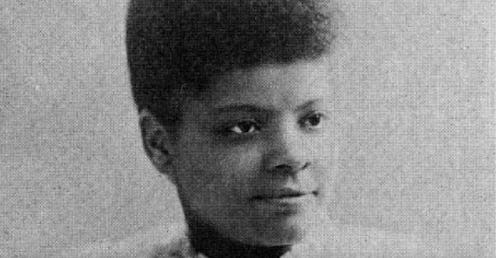Life
The ‘New York Times’ Is Publishing Obituaries For Accomplished Women Who Never Got One
Gender bias is so strong, not even death can dissuade it. In some cases, sexism quite literally follows women to the grave. In a survey of their archives extending back to 1851, the New York Times noted that their own obituaries have been “dominated by white men,” often omitting obituaries of equally accomplished women. Today, the Times is launched a series called “Overlooked,” publishing the obituaries of notable women whose stories the paper had previously left out.
In honor of this year’s International Women’s Day, which is today, the Times published 15 obituaries. Each details the lives and legacies of women whose work spanned most every field, from science to activism to arts and culture. You’ll likely recognize more than a handful of the names: Ida B. Wells, Henrietta Lacks, Charlotte Brontë. Yes, even the author of “Jane Eyre,” a book that is one of the most canon in literary canon, didn’t get a shout out from the Times when she died in 1855.
As the Times notes, the “Overlooked” series is extending beyond International Women’s Day. They intend on publishing previously “overlooked” obituaries of women in the coming months as well as extending the series to include other underrepresented groups. If you have a women whose legacy was passed over when she passed on, you can submit your own suggestion for an Overlooked obituary. It’s a small but notable posthumous step toward remembering the lives of women and acknowledging the accomplishments they achieved.
Unfortunately, even when women are recognized in death, their lives are often overshadowed by the men around. You need do little more than google “sexist obituary” to find a paper trail of women who were described by their measurements rather than their merits.
In 2015, best-selling Australian author Colleen McCullough died at 77, leaving behind a legacy of award-winning literature, most notably her novel The Thorn of Birds, which sold over 30 million copies worldwide. Her accomplishments are difficult to fit in a few paragraphs. However, The Australian chose to overlook them almost entirely, opening her obituary with a line on McCullough’s weight. “Colleen McCullough,” the obit begins, “Australia’s best selling author, was a charmer. Plain of feature, and certainly overweight, she was, nevertheless, a woman of wit and warmth.”
People were understandably unimpressed with the obituary, parodying the paper’s formula and writing their own obituaries. “Although his beard looked like someone had glued it on,” author Neil Gaiman tweeted, “& his hair would have been unconvincing as a wig, he married a rockstar.”
The New York Times has also been accused of publishing sexist obituaries in the past. In 2013, the Times published an obituary remembering Yvonne Brill, a rocket scientist who worked with NASA and was presented with the National Medal of Technology and Innovation by President Obama in 2011. Many criticized the Times for opening the obituary with a commentary on her cooking rather than her accomplishments. The obit as originally published (it has since been updated) read, “She made a mean beef stroganoff, followed her husband from job to job and took eight years off from work to raise three children.”
When Adele Morales, an actor an artist, died in 2015, the Times opened her obituary with the line, “who made headlines in 1960 when [husband Norman Mailer] stabbed and seriously wounded her at a drunken party.” The headline the paper ran for the obituary read, “Wife Mailer Stabbed Dies at 90.” Some saw the initial focus on the violence done to her rather than her own accomplishments as sexist.
In concurrence with the launch of “Overlooked,” Times’ obituary editor William McDonald wrote about why many of the obituaries they publish are still those of white men. “Unlike the rest of the newsroom, the obituaries desk covers the past, not the present,” McDonald writes. “Our pages mirror the world of 1975 or 1965 or 1955, or even earlier: They’re a rearview mirror, reflecting the world as it was, not as it is, and not as we might wish it to have been. And so we are, inevitably, a generation or three behind in tracking the evolution of gender and racial dynamics, among other things.”
Obituaries do more than announce a person’s death. They signify whose life is worth celebrating and whose stories are worth remembering. Thanks to writers like Amisha Padnani, who concepted the Times’ “Overlooked” series, the past is starting to catch up to the present and these women’s stories are being told with the accolades they deserve. Perhaps they signify a future in which women’s stories are listened to while they themselves are still around to hear the praise.
